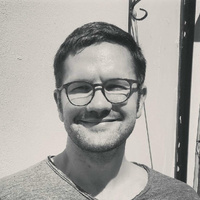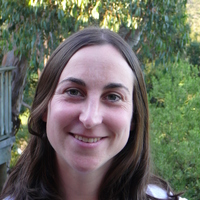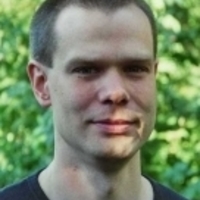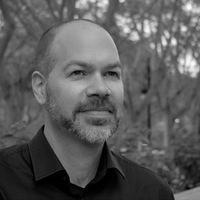
Johannes Angermuller
Against a background in linguistics and sociology, my research interests are centered around the discursive construction of social order. My methodological focus is on the complex organization of language in use, from the micro-level of polyphonic utterances to the macro-level of large collections of written texts. While addressing questions of power, knowledge and social change, I have pursued research on academic as well as political discourses. With a background in French linguistic discourse analysis and the qualitative traditions in the German and North American social sciences, I'm currently the PI of the ERC DISCONEX project (Discursive Construction of Academic Excellence) and the coordinator of DiscourseNet, an international and interdisciplinary network of discourse researchers at the crossroads of language and society (http://www.discourseanalysis.net, where you can register and get the latest news in discourse analysis).
Having obtained my PhD from the Universities of Paris 12 and Magdeburg in 2003, I was Professor in sociology at the University of Mainz, Germany. I am now Professor of Discourse at the Centre of Applied Linguistics at Warwick and research group director at EHESS in Paris.
Having obtained my PhD from the Universities of Paris 12 and Magdeburg in 2003, I was Professor in sociology at the University of Mainz, Germany. I am now Professor of Discourse at the Centre of Applied Linguistics at Warwick and research group director at EHESS in Paris.
less
Related Authors
Jan Zienkowski
Université libre de Bruxelles
Sixian Hah
National University of Singapore
Aysha Fleming
CSIRO
Martin Nonhoff
University of Bremen
Lone Sorensen
University of Leeds
Johannes Beetz
Johannes Gutenberg-Universität Mainz
Benno Herzog
Universitat de València
Jens Maeße
Justus-Liebig-University Giessen
Barry King
Auckland University of Technology
InterestsView All (21)









Uploads
Papers by Johannes Angermuller
Das zweibändige Handbuch zur interdisziplinären Diskursforschung gibt einen systematischen und umfassenden Überblick über das neue Feld der Diskursforschung. Der erste Band versammelt nationale und internationale Tendenzen, Entwicklungen und Fragen der Diskursforschung. Der zweite Band stellt wichtige diskursanalytische Methoden am Beispiel des Diskurses über die neoliberalen Hochschulreformen vor.
Mit seinem Schwerpunkt auf theoretischen Modellen und Strategien der diskursanalytischen Forschungspraxis im disziplinären und interdisziplinären Kontext richtet sich dieses Referenzwerk der Gruppe DiskursNetz an forschungsorientierte Studierende und alle Diskursforschenden, die sich für den Zusammenhang von Sprache und Gesellschaft interessieren.
The legitimacy of "Europe" and "the West" as identifiable territorial and imagined entities is in crisis. The awareness has grown of a world becoming more polycentric. At the same time, the field of Discourse Studies is growing at a dazzling rate across the globe. Discourse Studies is known for theoretical orientations and methodological tools that account for meaning production as a social practice mobilizing languages, media and technologies. It is thus uniquely placed to observe and analyse the shifting conceptions of a post-colonial, post-Eurocentric, post-west-and-the-rest world. The different understandings of the intersection of language and society, in the range of specific schools, theories and approaches within Discourse Studies promise to inspire conflicting analyses of the world today. The focus of Discourse Studies also varies according to the specific national or regional contexts in which issues of power and language, subjectivity and inequality, language and context are being problematized. For instance, Anglophone, French-, German-, Spanish-, Portuguese-, and Russian-speaking communities of discourse analysts and theorists are marked by dynamic debates, terminologies and approaches that are not always well known outside each language community.
The third DiscourseNet Congress, which is co-organized with ALED, aims to be a site of dialogue and reflection across and about different linguistic and national traditions in Discourse Studies.
We welcome papers which re-examine existing discourse theoretical frameworks, articulate new approaches from different fields and schools, study social phenomena empirically and reflect on the critical potential of Discourse Studies. We also invite contributions that deal with theoretical and/or methodological challenges in Discourse Studies, preferably with a focus on the nexus of knowledge and power.
Researchers may focus on a wide variety of topics. We encourage contributions that seek to develop novel approaches to, for instance: subjectivity in contemporary society, discursive epistemology, indexicality, ideology, knowledge and hegemony, governmentality in the knowledge economy, protest and activism, materiality of/and discourse, critique and reflexivity, bi-, multi- and translingual communication, language policy, discourse and gender, class, migration, racism, populism, (neo-
)fascism, discrimination, argumentation and rhetorics, social cognition, institutional discourse, workplace communication, practices and identities in the workplace, multimodal interaction and discourse analysis, online media formats and digital culture, materialism and discourse, digital humanities, cross-cultural interaction, multimodality, corpus and computer-aided analysis, conversation and interaction...